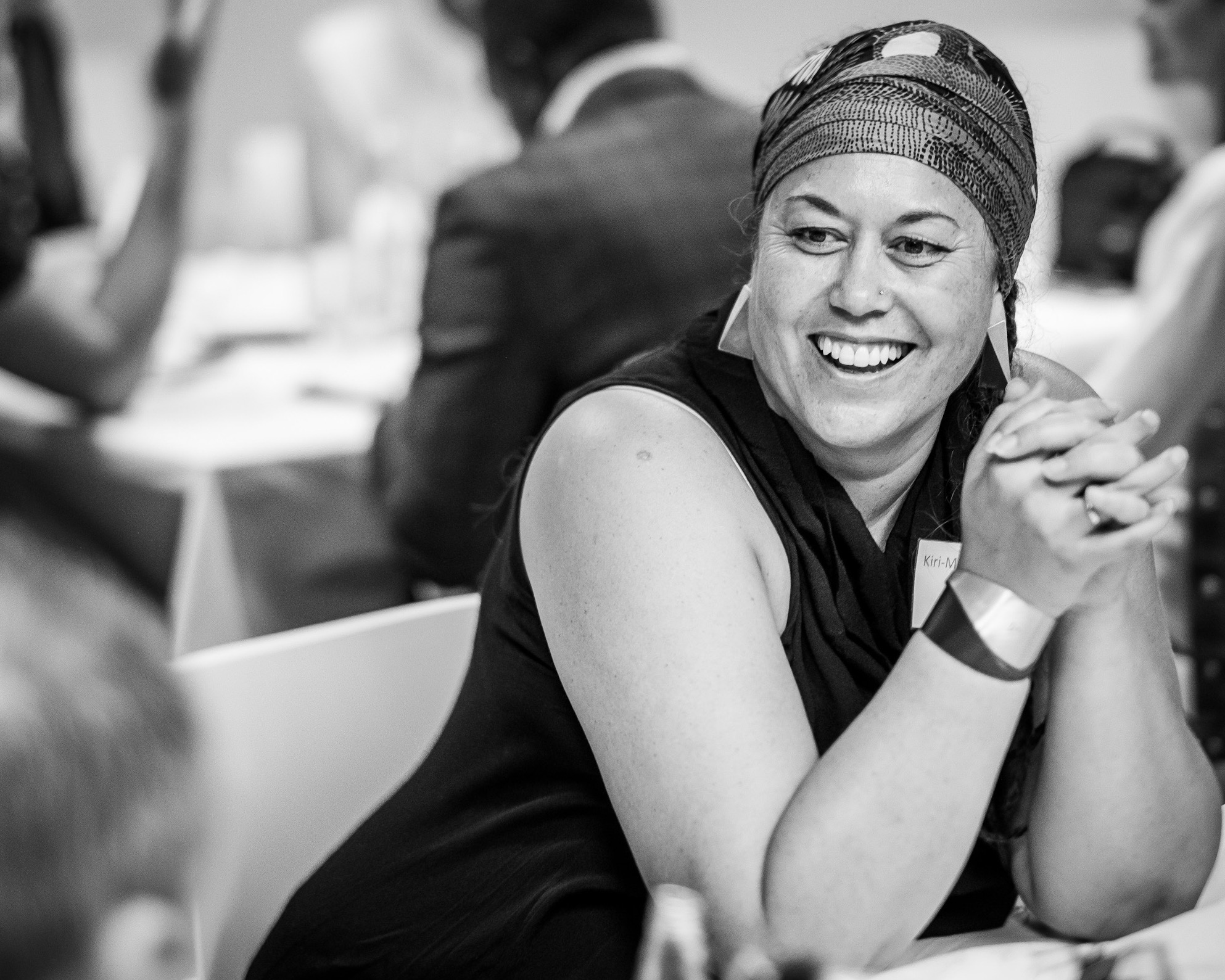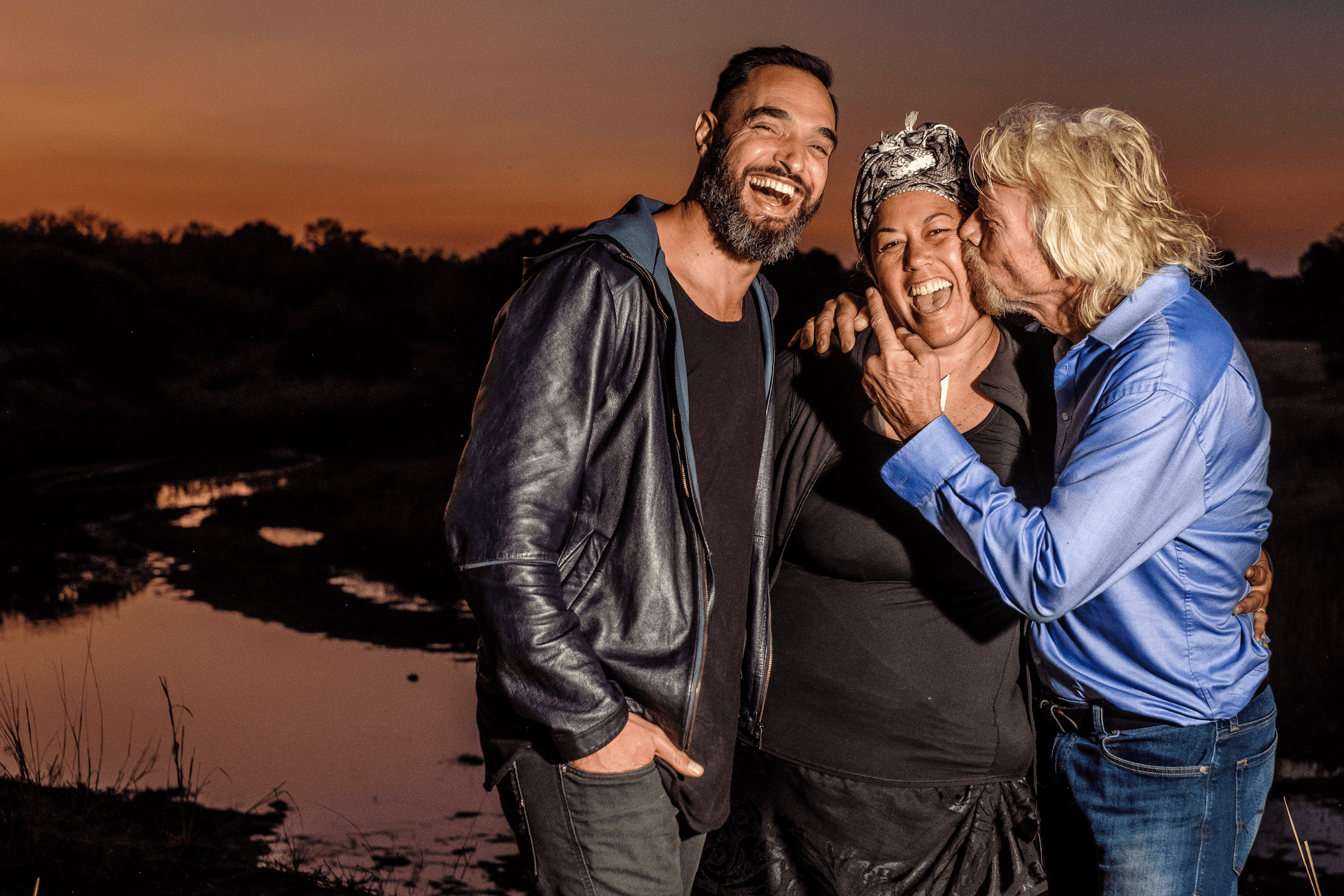Lifestyle
The One Percent Movement Founder: 6 Questions We Need To Ask Ourselves To Keep Creating Impact

How do we measure success? Often, the most successful technological, scientific and artistic innovations are measured based on the number of people they’re able to impact. The ability to scale is what we call it in business terms.
Now turns to the question of how we can create scale throughout all our lives?
It’s not as complicated as one may think. When people think about making an impact, they think of influencers championing obscure and large projects. As ambitious as someone may be, it’s not hard to feel small when you’re looking at the world through a comparative lens. The truth is, the only way you’re ever going to start making an impact is if you make the conscious decision to start now. Not only so, but dedicating your life to making small movements of shifting the dial forward by 1%. All it takes in retrospect is becoming better by 1% every day, to achieve a growth of 37% by the end of the year, according to James Clear, author of Atomic Habits.
Impact starts with our individual growth. If we’re committed to owning our decisions in a way that benefits humanity at large, then we are making an impact that will add value. You might not be able to assess your impact on the world based on immediate, tangible results, but the impact goes beyond what you can see on the surface. Think of the brightest legends in the world, Shakespeare, Picasso, Einstein…etc. The commonality they share is that they’ve all acquired fame at the same time—when they died.
Their contribution wasn’t for fame but it’s the micromovements they produced in their lifetimes that translated into a big cultural shift for later generations.
This is exactly the type of momentum Kiri-Maree Moore, CEO, and founder of Decision Velocity Global wants every person to move towards. “Leaving a legacy where these footprints will add value to those who follow,” she says. Kiri-Maree Moore is a speaker, advisor, investor, and serial entrepreneur who founded Decision Velocity Global and the One Percent Movement to give a platform to leaders around the world.
She shares the six questions we have to start asking ourselves if we want to create an impact.
Am I adding value?
As simple as physics, every action we take bears a consequence. We can choose to turn in to our calling or turn away from it. For example, if we feel limited by our circumstances we can choose to improve ourselves through education. But if we choose to focus on our limitations, we will always remain stagnant.
No matter how small it appears to be, any amount of progress gives you a bigger leap of confidence to proceed to the next step. “Every time you’re making a decision, you’re either adding value to humanity or taking it away, so ask yourself this: Am I adding value?” Kiri-Maree says.
She believes that a cultural shift will begin when everyone recognizes their ability to contribute, even in the smallest forms. If everyone participates, then the dial will start to move forward.
What are the patterns that are going to be the most effective?
We’re trained from a young age to have a fixed mindset on many things. However, this deviates us from being curious and finding other pathways that can result in more effective success. For example, many entrepreneurs have reengineered their thought patterns to find solutions to problems that no one else had.
“It’s hard to disrupt the pattern to what you know,” Kiri-Maree says. “It’s how you’ve always done it, and you don’t know what you don’t know but when you do there needs to be ownership.” In order for change to occur, we need to disrupt patterns. It’s not about going against the status quo, rather it’s about finding a different way to do things that allow us to narrow the gap between problem and solution.
Do I want to be the same tomorrow as I am today?
It can be overwhelming thinking about how we can “become” this person we want to be overnight, or even within a couple of months. Setting goals for personal growth is important, but measuring ourselves based on how we haven’t met the final outcome is counterproductive. It diminishes our confidence and motivation. Instead, we should focus on setting micro-goals every day. How can I be better than I was yesterday? This could simply be learning one new thing every day.
Growth is incremental and as Kiri-Maree puts it, “Growth is what it means for you. All I care about is if you’re shifting the dial forward. Everyone is called to play at a different level.”
Everyone can make the conscious decision to shift the dial forward, but it requires a degree of effort and awareness in our daily life.
If I wasn’t band-aiding, what could I be doing?

As humans, we’re drawn to instant gratification. We prefer to avoid pain and reap the rewards. However, growth can have a direct correlation with the uncomfortable.
Most people rely on band-aids, or quick-fix solutions to ease the discomfort they’re going through. Ask yourself this: Instead of deflecting or covering up the problem you’re facing, how can I identify patterns that lead to this issue, and try to rewire those patterns to produce a different outcome?
Every outcome is a consequence of patterns. If we have a sleep deprivation problem, it could be we’ve developed patterns from staying up late, thus impacting our overall ability to make meaningful contributions throughout the day. The result might be more irritation towards our family and colleagues, and producing lower quality work, but we tend to use coffee or stronger stimulants as a temporary, band-aid solution. But what people don’t realize is the use of short-term fixes decreases the chance of us actually rewiring our patterns to the results we want. A true solution to our sleep issue is to ditch the coffee and rewire our sleeping patterns. This same analogy can be applied to different problems we’re trying to overcome.
How do I prepare for the worst?
Our reaction to things has a large impact on our resilience. If we want a greater impact but we lack resilience, it’s hard for us to follow through on required actions when there are obstacles. Thus, preparation and having the tools to deal with hardship is quintessential for entrepreneurs.
Kiri-Maree suggests having strategies readily to develop tools that can help you navigate the challenges when faced with the uncomfortable. She’s a big believer in building human intelligence (HI).
When we work on building the muscle of human intelligence, we disrupt old patterns and engage with curiosity in a new approach. Drawing data in the form of insights, experience, and results, using this to disrupt patterns to strategically take action coming to an effective and sustainable outcome. Through this process, any data added is to make better decisions, thus, building the muscle of HI. Knowledge of patterns helps us to make decisions that are resilient enough to deal with the worst-case scenario, it makes the everyday hurdles appear diminished.
How can I learn from others?
A great way we can make an impact is by opening ourselves to perspectives where we learn from the wisdom of others. There is a source of endless curiosity for the individual willing to ask better questions, engage with anyone and know how to access the vast amount of knowledge out there in the world.
The point is, you don’t have to be friends with a Nobel prize winner or Oprah Winfrey to become wiser. In fact, just through connection with other humans, you can learn to see perspectives that you didn’t see before. This is accelerated when we’re able to master our human intelligence.
As demonstrated by Kiri-Maree, she brought strangers on a regular basis to her show The Decision Table to interview. “I wanted to role model I could bring anyone on to The Decision Table and know both my guest and I can always learn something from each other. And it is as simple as a conversation,” she says. If we stopped viewing the world as a competitive place, and choose to collaborate with different distinctions at the table, then we might actually move forward.
“ Create space to learn from others that are willing to continue to evolve,” Kiri-Maree says. “The greater capacity you have to learn to be flexible at doing this as an individual who is a part of the collective, the better chance you have at gaining a seat at the table.”
Conclusion
The process to become an effective leader is not this grandiose scheme for the future. It starts with everyday people, who choose to make everyday decisions a priority. The concept of shifting the dial forward by 1% is a proactive way we can get people to take ownership of our contribution back to humanity at scale. It helps to know that it’s not just all about me, but at the end of the day, it’s about more people who can think beyond themselves to achieve impact in collaboration through growth that adds value to the rest of the human race.
Lifestyle
Finding the “Best Virginia Personal Injury Lawyer Near Me:” A Complete Guide

Getting injured in a car accident is a stressful time. After all, you could face serious injuries that affect you for the rest of your life.
Thankfully, a good personal injury lawyer can help you navigate this complex moment in your life, but it can be easy to get overwhelmed finding the right one. If you are a resident of the Old Dominion and Googling “best injury lawyer near me Virginia,” look no further than the Richmond law firm Burnett & Williams.
One of the most common questions people ask about hiring an attorney after a car crash is “When should I contact a lawyer?” The answer is as soon as possible.
After receiving medical care, your next call should be to a personal injury attorney, as they will be able to get the ball rolling on your personal injury claim. A sense of urgency will help them fight to get you the compensation you deserve and prevent you from making any mistakes with the insurance company that will hurt you in the long term.
An important thing to keep in mind when hiring a personal injury attorney is the statute of limitations, the state-imposed deadline by which a victim has to file a lawsuit. If you miss this deadline, you could be barred from receiving any damages for the accident.
Although the statute of limitations can vary from state to state, in many states, including under Virginia law, it is two years from the date of an accident. If you delay hiring an attorney, it gives them less time to prepare your case.
Why hire a personal injury attorney?
But what does a personal injury attorney do that helps your case? The main benefits of hiring a personal injury attorney include:
- Investigation: After hiring an attorney, they will begin an extensive investigation process. They will collect all records, including police reports, medical records, witness statements, and photos you took of the scene. They may also revisit the scene of the accident or consult expert witnesses, such as medical experts or accident reconstruction specialists, to build the strongest possible case.
- Negotiation: Your lawyer will then get to work crafting a demand letter to the insurance company (or companies). One of the best things about hiring a personal injury attorney is that they handle all communications and negotiations with insurance companies on your behalf. Not only does this mean that you are less likely to fall victim to the insurance adjusters’ pressuring tactics, but it also allows you to focus more on what matters most: your recovery.
- Trial representation: While many personal injury cases end in settlements, sometimes both sides cannot come to an agreement for fair compensation. In these cases, your claim will proceed to trial, where it will be heard by a judge and/or jury. When a personal injury case goes to court, it is important to have a skilled trial lawyer on your side who is willing and able to argue your case.
How to determine which Virginia personal injury lawyer is best for your Virginia injury claim
However, it can be difficult to determine which personal injury attorney to hire. There are tons of radio ads, billboards, and Google search results that all claim to be the “best injury lawyer near me,” so how do you know which ones actually are the best? Attorney C. James Williams III, principal at Burnett & Williams, guides us through what injury victims should look for when hiring an attorney.
One of the first things to look for when hiring a personal injury attorney is their fee structure. The best personal injury lawyers typically work on a contingency fee basis, meaning they are paid a percentage of the final settlement or award. These are the “we don’t get paid unless you win” guarantees.
While other specialties, such as criminal law, operate on an hourly basis, the status quo for personal injury law is a contingency fee. “Be suspicious of anyone who asks for an upfront retainer or hourly rate for your personal injury case, as this could imply that they don’t think they can win your case,” Williams advises.
It is also important to look for a law firm with a specialty area that correlates with your specific accident. “Not every lawyer is trained and equipped to handle every personal injury case,” explains Williams. “For example, truck accidents involve additional complex laws beyond the typical auto accident case. So do motorcycle accidents. An attorney who has only ever handled standard car accident claims might not be the right fit to handle one of these cases.”
But perhaps the single biggest factor to consider when choosing the best injury lawyer near you is their track record. “More often than not, experienced personal injury attorneys’ results should be able to speak for themselves,” says Williams.
If a law firm has good reviews online and has a history of winning big settlements and jury awards, chances are they are a good choice to hire. “And as a bonus, the better the reputation, the more leverage you get in the negotiation process,” Williams adds. “Insurance companies are often scared to go to trial against a lawyer they think they might lose to.”
If you are looking for the best Virginia personal injury lawyers, look no further than the skilled and experienced attorneys at Burnett & Williams. “Contact us today for a free consultation,” concludes Williams. “We will review your case and determine if we can help get you the compensation you deserve.”
-

 Tech5 years ago
Tech5 years agoEffuel Reviews (2021) – Effuel ECO OBD2 Saves Fuel, and Reduce Gas Cost? Effuel Customer Reviews
-

 Tech6 years ago
Tech6 years agoBosch Power Tools India Launches ‘Cordless Matlab Bosch’ Campaign to Demonstrate the Power of Cordless
-

 Lifestyle7 years ago
Lifestyle7 years agoCatholic Cases App brings Church’s Moral Teachings to Androids and iPhones
-

 Lifestyle5 years ago
Lifestyle5 years agoEast Side Hype x Billionaire Boys Club. Hottest New Streetwear Releases in Utah.
-

 Tech7 years ago
Tech7 years agoCloud Buyers & Investors to Profit in the Future
-

 Lifestyle5 years ago
Lifestyle5 years agoThe Midas of Cosmetic Dermatology: Dr. Simon Ourian
-

 Health7 years ago
Health7 years agoCBDistillery Review: Is it a scam?
-

 Entertainment7 years ago
Entertainment7 years agoAvengers Endgame now Available on 123Movies for Download & Streaming for Free
